
The 2004 Summer Olympics, officially known as the Games of the XXVIII Olympiad, were a summer multi-sport event held in Athens, the capital city of Greece, from 13 to 29 August 2004. A total of 10,625 athletes from 201 countries represented by National Olympic Committees participated in these games, competing in 301 events in 28 sports. Kiribati and Timor Leste competed for the first time in these Olympic Games.
The 1980 Summer Olympics, officially known as the Games of the XXII Olympiad, were an international multi-sport event held in Moscow, Russian SFSR, Soviet Union from 19 July to 3 August. A total of 5,179 athletes representing 80 National Olympic Committees (NOCs) participated in 203 events in 22 sports. They were the first Games to be staged in a communist nation.

The 1936 Summer Olympics, officially known as the Games of the XI Olympiad, was an international multi-sport event held in Berlin, Germany, from 1 August to 16 August.
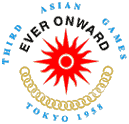
The 1958 Asian Games, officially the Third Asian Games and commonly known as Tokyo 1958, was a multi-sport event held in Tokyo, Japan, from 24 May to 1 June 1958. It was governed by the Asian Games Federation. A total of 1,820 athletes representing 20 Asian National Olympic Committees (NOCs) participated in the Games. The program featured competitions in 13 different sports encompassing 97 events, including four non-Olympic sports, judo, table tennis, tennis and volleyball. Four of these competition sports – field hockey, table tennis, tennis and volleyball – were introduced for the first time in the Asian Games.

The 2006 Winter Olympics, officially known as the XX Olympic Winter Games, was a winter multi-sport event held in Turin, Italy, from February 10 to February 26, 2006. A total of 2,508 athletes representing 80 National Olympic Committees (NOCs) participated in 84 events from 15 different sports and disciplines.
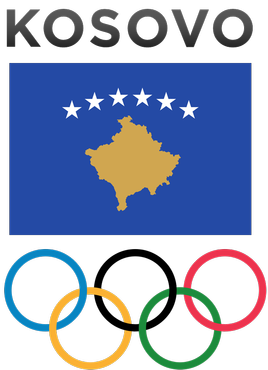
The Olympic Committee of Kosovo is the National Olympic Committee representing Kosovo. Officially established in 1992, the OCK became a full member of the International Olympic Committee and the Olympic Movement on 9 December 2014. It is responsible for Kosovo's participation at the Olympic Games.

The 2010 Winter Olympics, officially known as the XXI Olympic Winter Games, was a winter multi-sport event held in Vancouver, British Columbia, Canada, from February 12 to February 28. A total of 2,632 athletes representing 82 National Olympic Committees (NOCs) participated in 86 events from 15 different sports and disciplines.

The following medal table is a list of National Olympic Committees (NOCs) and one non-NOC team ranked by the number of gold medals won by their athletes during the 2016 Summer Olympics in Rio de Janeiro, from 5 to 21 August 2016.
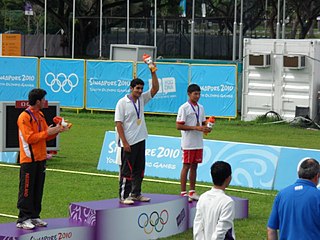
The 2010 Summer Youth Olympics, officially known as the Singapore 2010 Youth Olympic Games (YOG), were an international multi-sport event held in Singapore from 14 to 26 August 2010. The event was the inaugural Youth Olympic Games, and it saw 3,531 athletes between 14 and 18 years of age competing in 201 events in 26 sports. This medal table ranks the 204 participating National Olympic Committees (NOCs) by the number of gold medals won by their athletes. The Kuwait Olympic Committee was suspended by the International Olympic Committee (IOC) prior to the Games, but Kuwaiti athletes were allowed to participate and the country is listed in the table, bearing the Olympic flag.

The 2010 Asian Games, also known as the XVI Asiad, was a multi-sport event held in Guangzhou, China from 12 to 27 November 2010. The event saw 9,704 athletes from 45 National Olympic Committees (NOCs) competing in 476 events in 42 sports. This medal table ranks the participating NOCs by the number of gold medals won by their athletes.

The 2002 Asian Games was a multi-sport event held in Busan, South Korea from September 29 to October 14, 2002. Busan was the second South Korean city to host the Games, after Seoul in 1986. A total of 6,572 athletes—4,605 men and 1,967 women—from 44 Asian National Olympic Committees (NOCs) participated in 38 sports divided into 419 events. The number of competing athletes was higher than the 1998 Asian Games, in which 6,544 athletes from 41 NOCs participated. It was the first time in the history of the Asian Games that all 44 member nations of the Olympic Council of Asia (OCA) participated in the Games. Afghanistan returned after the fall of the Taliban government in the midst of ongoing war; East Timor, newest member of the OCA made its debut; and North Korea competed for the first time in an international sporting event hosted by South Korea. Both nations marched together at the opening ceremony with a Korean Unification Flag depicting the Korean Peninsula as United Korea.

The 1963 Pan American Games, officially known as the IV Pan American Games, was a continental multi-sport event held in São Paulo, Brazil, from April 20 to May 5, 1963. At the Games, 1,665 athletes selected from 22 National Olympic Committees (NOCs) participated in events in 19 sports. Eighteen nations earned medals during the competition and eleven won at least one gold. Barbados, debuting at the Pan American Games, won its first medals, while British Guiana won its first ever gold medal. Colombia, Costa Rica, the Dominican Republic, Haiti, Nicaragua and Paraguay did not send athletes to São Paulo, making it the Games with the lowest number of competitors in history.
The 2012 Winter Youth Olympics medal table is a list of National Olympic Committees (NOCs) ranked by the number of gold medals won by their athletes during the 2012 Winter Youth Olympics, held in Innsbruck, Austria, from January 13 to January 22, 2012. Approximately 1,059 athletes from 70 NOCs participated in 63 events in 15 sports.
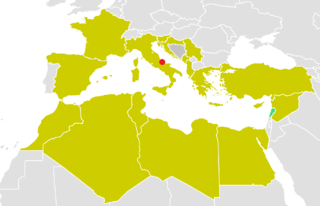
The 2009 Mediterranean Games, officially known as the XVI Mediterranean Games, was a multi-sport event held in Pescara, Italy, from 26 June to 5 July 2009. A record total of 3,368 athletes—2,183 men and 1,185 women—representing 23 National Olympic Committees (NOCs) participated in the Games. The number of competing NOCs was the highest in Mediterranean Games history, alongside Tunis 2001.
The 2014 Summer Youth Olympics medal table is a list of National Olympic Committees (NOCs) ranked by the number of gold medals won by their athletes during the 2014 Summer Youth Olympics, held in Nanjing, China, from 17 to 27 August 2014.
The 2015 Pan American Games medal table is a list of National Olympic Committees (NOCs) ranked by the number of gold medals won by their athletes during the 2015 Pan American Games, held in Toronto, Canada from July 10 to 26, 2015. Approximately 6,132 athletes from 41 NOCs participated in 364 events in 36 sports and 51 disciplines.
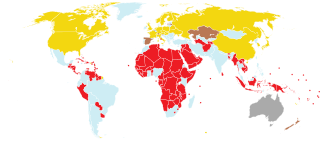
The 2018 Winter Olympics medal table is a list of National Olympic Committees ranked by the number of medals won during the 2018 Winter Olympics, held in Pyeongchang County, South Korea, from 9–25 February 2018. The games featured 102 events in 15 sports, making it the first Winter Olympics to surpass 100 medal events. Four new disciplines in existing sports were introduced to the Winter Olympic program in Pyeongchang, including big air snowboarding, mixed doubles curling, mass start speed skating, and mixed team alpine skiing.
An all-time medal table for all European Games from 2015, is tabulated below. The EOC itself does not publish all-time tables, and publishes unofficial tables only per single Games.
The 2018 Summer Youth Olympics medal table is a list of National Olympic Committees (NOCs) ranked by the number of gold medals won by their athletes during the 2018 Summer Youth Olympics, held in Buenos Aires, Argentina, from 6 to 18 October 2018.
The 2019 European Games was a multi-sport event held in Minsk, Belarus from 21 to 30 June 2019.












